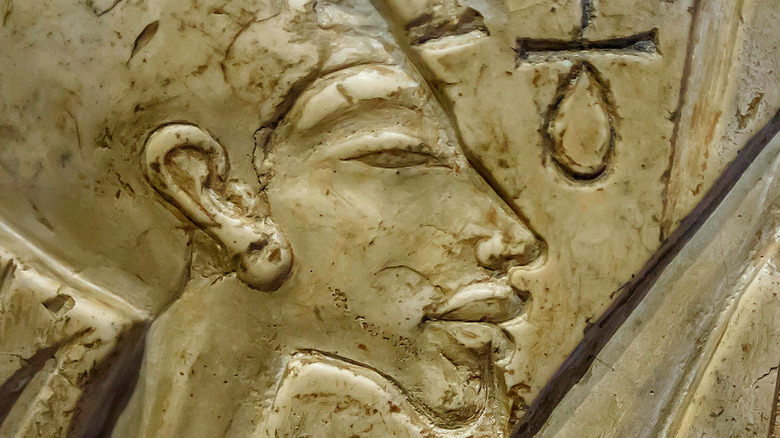What Kind Of Jobs Were Common In Ancient Egypt?
Ancient Egypt is one of the most influential civilizations in the history of humanity, and though many know the stories of its glamorous leaders, deep mythology, advanced writing system, and breathtaking monuments, fewer are probably aware of what the average Egyptian was up to in the time of pharaohs and pyramids, and what jobs were available to its regular citizens.
Not everybody was busy building sphinxes or feeding grapes to the pharaoh while floating along the Nile. In fact, there was a variety of jobs that the citizens of Egypt could take up, though it was less a matter of choice and more one of inheritance (via BBC). Ancient Egyptians could be farmers, bakers, priests, scribes, merchants, craftsmen, and even doctors. Children were not given a formal education, but often took up apprenticeships by which they would learn their future trade. This meant that many Egyptians were for all intents and purposes beginning their careers as children.
Farmers were the backbone of Ancient Egyptian society
According to World History, the most important job to the Egyptian economy was the farmer. Farmers sustained the entire civilization with their crops, and generally enjoyed the work, although they did appreciate the festivals that allowed the farmers to rest. For a while, Ancient Egypt had no cash economy, with the government collecting the harvest and distributing it back to its people based on need and merit. Everyday transactions relied on agriculture-based barter. Laborers were often paid in food, particularly bread and beer, which were staples of the Ancient Egyptian diet.
A unique, dangerous, but very important job to Ancient Egyptian society was the reed cutter. The reeds that grow on the banks of the Nile had many uses, particularly in the manufacturing of papyrus, which was used to make paper and other products. The Nile is home to crocodiles, snakes, and hippopotamuses that can all be deadly, and the reed cutter had to deal with these hazards every day, even though the job was at the bottom of the social hierarchy. Just as is too often the case today, the most dangerous and important jobs were also the most under-appreciated.

